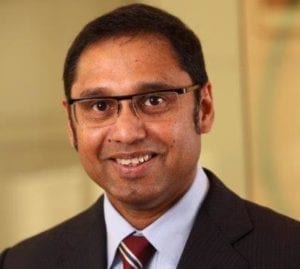Substantial investment and decades of international experience has placed global engineering consultancy firm SMEC as a frontrunner in ensuring the continued development and upgrade of water infrastructure in Africa.
The international SMEC Group water division is undertaking projects worldwide to the value of an estimated US$40-million, and SMEC general manager for water and environment, Pula Herath points out that the division boasts a geographical footprint across 13 countries in Africa. “Water is a scarce resource worldwide, nowhere more so than Africa. To ensure that this precious commodity is efficiently managed on a local level, SMEC places a high priority on localisation. It is one of only a few international consultancies that has established a permanent presence in Africa, thereby ensuring a better overall offering to the local market,” he explains. Herath indicates that the SMEC water division specialises in three main areas of water management, namely; water resources and catchment management, conveyance and treatment. “Water resources and catchment management involves planning, developing, distributing and managing the optimum use of water resources, while conveyance involves the transport of water from dams to facilities where water is treated, stored and distributed to consumers.” In South Africa, Herath notes that the SMEC water division has undertaken the bulk of its work on water optimisation and rehabilitation. “Although South Africa has a solid water infrastructure, wastage is a major concern, with up to 35 percent of all water supply being unaccounted for on a continuous basis,” he continues.Herath explains that unaccounted for water is water that the authority pays for, but does not generate revenue from. “This can result from leakages or poor management strategies, and has a considerably negative environmental and financial impact on communities. As a result, SMEC is committed to assisting local authorities in water delivery optimisation.”
Rehabilitation of water pipelines in Johannesburg and Soweto has also been a focus for SMEC, whereby the company identifies and rectifies leakages. With focus on dirty water treatment, Herath notes that SMEC is currently in the process of developing a plan for upgrading the largest sewerage plant in Kenya. Looking further afield, the company is also currently involved in Australia’s three largest desalination plants in Adelaide, Melbourne and Sydney respectively. With economic growth and investment in Africa is increasing at a rapid rate, Herath believes that the private sector will play a fundamental role in funding water infrastructure projects that many governments cannot afford, especially as the clean supply of drinking water becomes a scarce and valuable resource as demand increases. “Private investment is essential in ensuring that African infrastructure continues to develop towards international standards. Water management has become an integral aspect of everyday life for both private citizens and businesses, and SMEC combines its substantial water design and engineering capabilities to help efficiently address the demand for sustainable long term water management,” he concludes.






